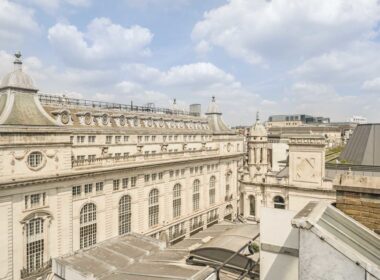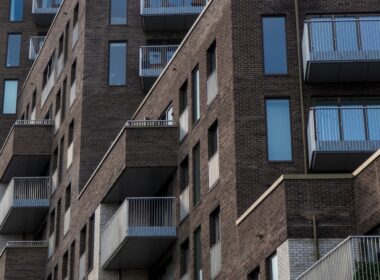By Joe Freedman, Senior Originator at ASK Partners
A complex yet promising investment opportunity that is evolving to become even more resilient to structural changes during an economic downturn with the benefit of being able to hedge against inflation
As we approach 2025, savvy investors are increasingly turning their attention to the UK hotel sector, recognising it as one of the more promising avenues for real estate growth.
Despite market caution, transaction volumes are up, and developers and operators are becoming more creative in response to an evolving market in terms of guest demand.
Here’s why hotels are emerging as 2025’s real estate hidden gem.
Strong market performance
The UK hotel market has rebounded strongly, nearing pre-pandemic performance levels, as evidenced by Knight Frank’s recent figures.
Key metrics reflect an optimistic outlook: £4.5 billion has been transacted across the sector, and the market is on track to reach £6 billion by the end of 2024, aligning with 2019 figures.
Notably, London and Edinburgh are the leading areas, with the latter boasting double-digit year-to-date revenue growth. Additionally, the upper upscale segment is outperforming the select-service market, while regional growth is buoyed by demand for golf and spa retreats, recording a 12.5% increase in revenue per available room (RevPAR).
Yields have remained stable, with caution mitigating yield compression despite the improvement in investor appetite. With the gap widening between yields and debt costs, we should see more stock coming to market in 2025.
What is attracting investment into the sector?
Hotels are dynamic real estate assets which makes them very attractive investments. They have always been popular with sophisticated investors, but we are now seeing a rising appeal amongst wealthy individuals and family offices.
The key attraction is that hotels can update their pricing daily which as such, acts as an inflationary hedge. This reactive pricing also helps to drive occupancy rates and consequently revenues, with some London hotels able to achieve percentage occupancy rates in the high 90s, year-round.
The speed at which the sector has bounced back since the pandemic has also been seen as an investment plus, with cities that attract business and tourist travellers and host music and sporting events, the most appealing locations.
The other benefit of the sector is the significant opportunities available for cross-selling, such as food, drink, spa and shopping. However, this is a highly cyclical asset class; as recession hits, the impact is immediate as travel gets cut straight away and the impact of the pandemic feels very fresh.
To insulate against this, we are seeing flex-style models come to market and real creativity to stand out and go beyond guest expectations.
Evolving models: meeting new guest demands
Following the shock of the pandemic, a hotel model that can flex through market conditions is the ultimate nirvana.
One example is more of a social hybrid hospitality hub than a hotel, in essence a community for students, workers and travellers. The idea is unsurprising given the need for student accommodation and flexible workspace but also the evolution of corporate travel, with guests looking for a more engaging experience.
Aparthotels are also picking up business where corporate travellers may have had a London residence or pied a terre pre-pandemic, they are now looking for regular home from home style stays and some operators are offering 25–150-night packages usable across a year and with members’ club-style benefits.
Another example is the London Hyde City, a lifestyle brand launched in collaboration with Ennismore, which has demonstrated how creative design and great food, and beverage can create a resort-style offering and elevate occupancy rates in a micro-location which is not currently seen as a destination.
Hotels are adopting innovative approaches to communal spaces, as exemplified by Hard Rock Marbella’s transformation of its lobby into a bustling, revenue-generating hub. This trend highlights the rise of “destination within destination” experiences, where curated food, beverages, and ambiance elevate guest value.
Room sizes and average length of stay are also shifting. Some operators focus on compact rooms and quick guest turnover to optimise efficiency, while serviced apartments cater to longer stays and achieve consistent, year-round occupancy.
Such flexibility allows hoteliers to meet diverse market demands while maximising revenue per square foot.
Economic considerations and other challenges
The broader economic environment remains a critical factor influencing hotel sector growth. The 2024 UK Autumn Budget and a significant increase in the national living wage present cost challenges just as staffing levels have reached pre-pandemic norms.
Operators predict a 6% RevPAR growth in 2025 will be required to offset rising costs. This is achievable in London and Edinburgh, but other cities will likely struggle. However, developers continue to grapple with growth complexities, particularly ground-up developments constrained by a lack of suitable land.
Conversion projects may dominate the pipeline, offering a pragmatic path to expansion while leveraging existing infrastructure. For developers, finding innovative financing solutions is essential given rising construction costs, the effects of increased requirements to meet energy performance certifications and fire regulations and the challenging planning system. But the rising breed of non-bank lender is in many cases able to offer that flexibility.
Investment options
Hotels clearly represent an intriguing real estate investment opportunity, and we anticipate growing investor interest in this sector in 2025.
However, options for non-institutional investors remain somewhat limited. Among the available choices are publicly listed REITs or real estate debt investment platforms.
At ASK, we’ve observed strong hotel opportunities within our deal flow, as well as significant interest from our private client HNWIs and family offices in participating in these investments.
The economic shock of the pandemic has spurred a new generation of hoteliers who are keen to maximise their offerings, innovate, and better align with evolving market demands.
These are the kinds of projects that we will be looking to back in 2025 and are the ones which will be able to deliver the best risk-adjusted returns for our investors.




